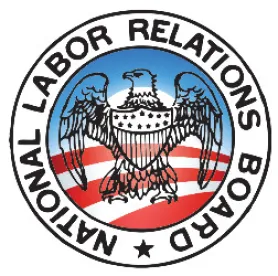The National Labor Relations Board (NLRB) Office of the General Counsel (GC) has signaled in a sweeping memorandum that the agency, under the Trump administration, is likely to reconsider and reverse many of its groundbreaking initiatives and controversial rulings adopted under the Obama-era Board.
The GC is effectively the chief prosecutor in cases before the NLRB, and thus has a significant say in which cases come before the Board and how the issues are presented. In what is likely to be the first step in the wholesale reworking of Obama-era precedent, the new GC, Peter B. Robb, has instructed NLRB regional offices to seek input from the NLRB's Division of Advice before issuing complaints involving certain issues, and also withdrawn guidance issued by his predecessors. Confirmed by the Senate last month, Mr. Robb issued Memorandum GC 18-02 on December 1.
The GC has instructed regional offices to consult Advice for "alternative analysis"—rather than apply Obama-era precedent—on a host of issues. This move will impact some of the most controversial Obama-era Board decisions, such as Browning-Ferris (expanding coverage of the joint employer doctrine), Purple Communications (holding that employees generally have a right to use employer email systems for union and other activities protected by the National Labor Relations Act (NLRA)), and Lincoln Lutheran of Racine (reversing more than 50 years of precedent and holding that the dues check-off obligation survives expiration of a collective bargaining agreement). Additional cases that will require consultation with Advice include those involving:
-
concerted activity for mutual aid and protection where only one employee has an immediate stake in the outcome;
-
protection of activity under the NLRA that is obscene, vulgar, or highly inappropriate;
-
common employer handbook rules prohibiting disrespectful conduct, use of employer trademarks and logos, and workplace recordings;
-
social media postings that violate employer EEO policies;
-
intermittent and in-plant work stoppages;
-
off-duty employee access to employer property;
-
confidentiality of sexual harassment and other workplace investigations;
-
successorship; and
-
an employer's unilateral changes in terms and conditions of employment consistent with past practice.
In addition, the Obama-era GC memos and initiatives rescinded by last week's memo include those addressing:
-
the ability of employers to withdraw recognition from an established union;
-
various workplace rules;
-
inclusion of front pay in Board settlements;
-
deferral to the grievance and arbitration process; and
-
misclassification of independent contractors as an automatic violation of the NLRA.
We are now at the beginning of what is expected to be an era of dramatic change in NLRB law. As decisions begin to come down reflecting these changes, employers should be prepared to review and revise handbooks and policies, retrain supervisors and bargainers on the new guidance, and alter course on employer-employee interactions in both union and non-union workplaces.





 />i
/>i
